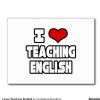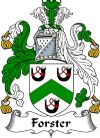|
ESL Forum:
Techniques and methods
in Language Teaching
Games, activities
and teaching ideas
Grammar and
Linguistics
Teaching material
Concerning
worksheets
Concerning
powerpoints
Concerning online
exercises
Make suggestions,
report errors
Ask for help
Message board
|
ESL forum >
Ask for help > cockney
cockney
|

chenchen_castrourdiales

|
cockney
|
|
Hi there,
First of all I must thank all the help I got from the people who helped me with my last question. My students got the difference between cancel and call off very well. I am proud of belonging to this wonderful community.
Today I have screened an episode of the hilarious TV series "mind your language". After seeing a few videos of it on youtube I decided to buy it on ebay for my students. We have watched "All through night" episode in which an old man starts speaking what the students � teacher calls "cockney rhyming slang". Neither my students nor me understood a single word to this old man. I know I can find lots of information if I google it on the net but I prefer first to ask you about it. Do you know a good video to screen or webpage to show my students about it? Can you give me examples of cockney slang? Who and where is cockney spoken by? How can I explain it to my students? Any piece of information will be welcome.
Thanks in advance. |
9 Mar 2011
|
|
|
|

Zora

|
I just asked my fiance about this (he �s a Londoner) and here �s what he �s just emailed me back with:
Cockney rhyming slang is where a word is replaced by another word or
phrase that rhymes with the original word. For example "frog and toad"
means "road" and "Barnet fair" is "hair" so you *could* say "I �m going
down the frog and toad to get my Barnet fair cut", but you �d be more
likely to say "I �m going down the frog to get my Barnet cut".
Here is a page with some examples: http://www.fun-with-words.com/crs_example.html
Technically
you are a Cockney if you are born within the sound of Bow Bells (ie the
bells of Bow Church in East London). However most people from a wider
area of East London would be comfortably described as Cockneys.
Cheers,
Linda
|
10 Mar 2011
|
|
|

Tere-arg

|
Hi,
I understand many people in England speak cockney.
My close friend lives in Hereford and cockney is their every day language so it is very common for him to say "I�m going to have some Rosie Lee" (for tea).
Many times they only use the first word as the rest is clearly understood (for those familiar with it).
I am a bit Tom (for "Tom and Dick", cockney for "sick")
It is not that Lemon, isn�t it?. (Lemon Squeezy = easy) 
You can also go to youtube and find interesting material regarding the subject.
|
10 Mar 2011
|
|
|

teachertonyinchina

|
|
I agree mostly with Zora �s reply. however we would not say "I �m going down the frog and toad to get my Barnet fair cut", we would just say "I m going down the toad to get my Barnet cut �. We normally only use the first word of a phrase.
|
10 Mar 2011
|
|
|

christybridgeman

|
|
Although this is very interesting to me as a native speaker of English... please do not seriously teach this to students who are just learning English. Say it in passing or something because I have a feeling this could be very confusing and detrimental to their language learning. |
10 Mar 2011
|
|
|

MJ_Misa

|
Cockney is a slang used in East London. But I don�t think it�s a good idea to teach it. I�d be afraid they could get confused. I told my sts about this and sayd several examples just to make them laugh (sorry Cockneys), but that was all.
BTW - I lived in London for several years but I never got to understand Cockney properly.  Take care, Michaela |
10 Mar 2011
|
|
|

Jayho

|
|
I �m sure Chen chen knows best what to teach his/her students and what to show them in passing.
Exposing students to things such as this is great because afterall English may be universal but it comes in many forms. Cockney refers to accent as well as the Cockney expressions/slang that we think about when we say Cockney. The accent, believe it or not, is similar to our broad Australian English, like how Paul Hogan and Steve Irwin (RIP) speak. Some Cockney expressions are also are used here, dog and bone for example (telephone) not that I use it, but some do.
You �ll come across it in movies/TV such as Oliver Twist, Mary Poppins, Doctor Who, Are You Being Served, Minder (heaps there), even Buffy and Ocean �s Eleven. It is alive and well and a part of the English language whether people like it or not. So, enjoy and experience it I say. |
10 Mar 2011
|
|
|